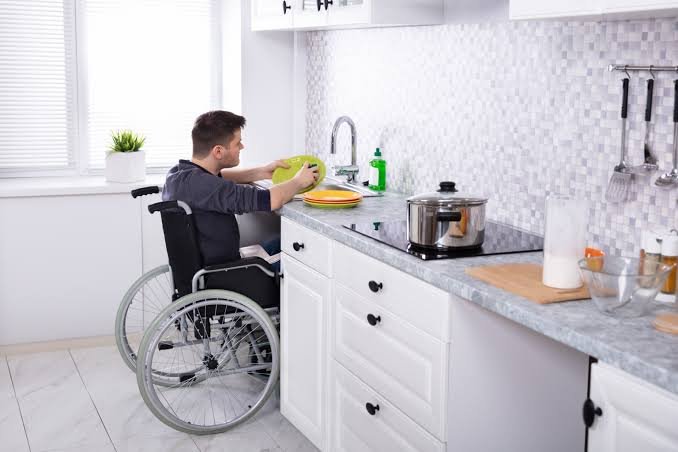Finding suitable accommodation is crucial for individuals living with a disability. Through the National Disability Insurance Scheme (NDIS), participants are supported to live independently and access suitable housing options that meet their needs. However, navigating the array of choices can sometimes be overwhelming. Whether you’re a participant or a caregiver, understanding the accommodation options available under the NDIS can make a difference.
In this article, we’ll look at the different accommodation types, key considerations when choosing a house, and how to find the right fit for individual needs.
Understanding NDIS Accommodation
The NDIS offers various housing options tailored to accommodate different levels of care and support. These include Supported Independent Living (SIL), Specialist Disability Accommodation (SDA), and Individual Living Options (ILO). Each is designed to provide participants with varying levels of independence and care.
Supported Independent Living (SIL)
Supported Independent Living (SIL) is one of the most popular NDIS-funded accommodation options. It allows individuals to live independently while receiving day-to-day support for personal care, cooking, or cleaning activities. The level of support is tailored to each individual’s needs, ensuring they can live as independently as possible.
SIL is usually offered in shared homes where several NDIS participants live together and share common areas, but each has a private bedroom. The support workers are available full-time or on a scheduled basis, depending on the level of care required.
Specialist Disability Accommodation (SDA)
For participants with higher support needs, Specialist Disability Accommodation (SDA) is a great option. These housing arrangements cater to individuals requiring a more supportive and accessible living environment. SDA homes are purpose-built with wider hallways, adjustable equipment, and specialised safety features, all designed to ensure accessibility and safety for people with complex needs.
SDA aims to provide participants with an environment that fosters greater independence and well-being. Typically, these accommodations are shared with other residents, though there are options for private units.
Individual Living Options (ILO)
For those who prefer even more flexibility in their living arrangements, Individual Living Options (ILO) provide a tailored approach to independent living. Unlike SIL and SDA, ILO allows participants to design a living arrangement that suits their lifestyle and support requirements. This could involve living alone with regular check-ins, living with a host family, or arranging support within your home.
ILO is about personal choice and finding creative, practical solutions supporting a participant’s independence and social life.
Critical Considerations for Choosing NDIS Accommodation
Choosing suitable NDIS accommodation is not just about finding a house—it’s about finding a place where individuals feel comfortable, safe, and supported. Several factors must be considered when exploring accommodation options under the NDIS.
Level of Support
The most crucial factor to consider when choosing NDIS accommodation is the level of support required. SIL and SDA provide structured support, while ILO offers more flexibility. It’s essential to evaluate the participant’s daily living needs and how much assistance they require to ensure their accommodation can meet those needs without compromising their independence.
Location and Accessibility
Location plays a critical role in selecting suitable NDIS accommodation. For instance, participants may want to live close to family, work, or places of social interest. When considering locations like accommodation in Auburn, NSW, accessibility to public transport, medical facilities, and community services is essential to ensure convenience and ease of movement.
Moreover, some participants may require homes with specific accessibility features like ramps, lifts, or other modifications to suit mobility devices. Ensure your accommodation is in a location that aligns with the participant’s lifestyle and access to essential services.
Social Interaction
For some individuals, social interaction is crucial to their well-being. Living arrangements such as SIL and SDA, which involve shared homes, provide opportunities for social engagement with housemates, support staff, and neighbours. Assessing how much social interaction is desired and whether shared or private living arrangements would better suit the participant’s preferences is essential.
Future Planning
Another consideration is future planning. It is vital to consider how well the accommodation will serve the individual’s long-term needs. Will their care needs change over time? Is the accommodation flexible enough to accommodate these changes? Planning for the future helps avoid frequent moves and ensures stability in the participant’s life.
Finding the Right Fit
Finding suitable NDIS accommodation requires collaboration between participants, caregivers, support coordinators, and service providers. Start by assessing the participant’s immediate needs and long-term goals. Consider their preferences, social needs, and the level of independence they wish to maintain.
For instance, when considering accommodation in Auburn NSW, it’s essential to explore all available housing types and understand what level of support can be provided. Whether it’s a quiet neighbourhood or a vibrant, community-centric location, Auburn offers various options to suit different lifestyles.
It’s equally important to involve the participant in every step of the decision-making process. Giving them autonomy in choosing their accommodation fosters a sense of ownership and independence, which are central to the principles of the NDIS.
Conclusion
Exploring NDIS accommodation options involves more than finding a roof over someone’s head. It’s about ensuring that individuals with disabilities can thrive in an environment that meets their personal, social, and medical needs. From SIL to SDA and ILO, each accommodation type offers different levels of support and independence.
By considering factors like level of care, location, social needs, and future planning, participants and caregivers can make informed decisions that contribute to the participant’s overall well-being. Whether you are looking for accommodation in Auburn, NSW, or anywhere else, the right housing choice can genuinely enhance the quality of life for NDIS participants.


